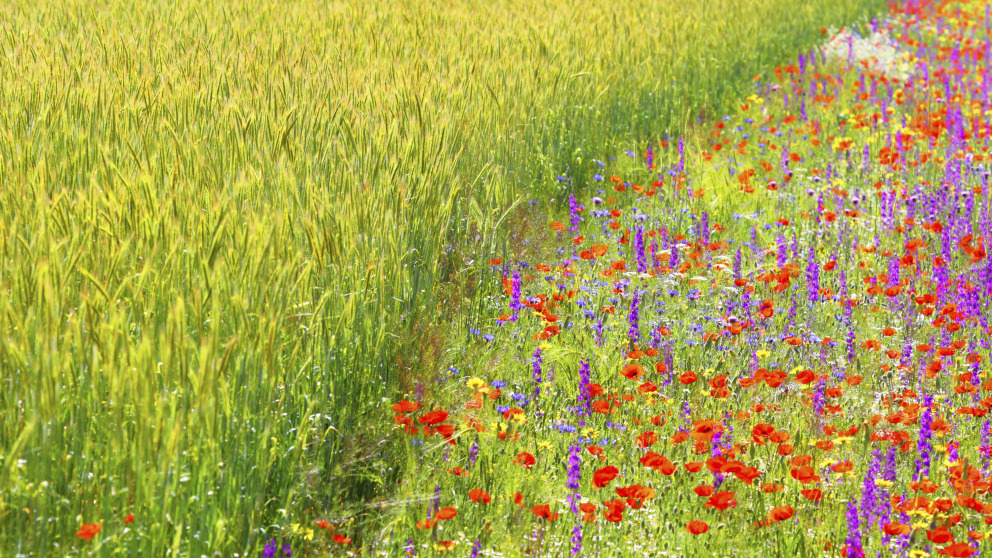IASS Survey in Brandenburg: What Motivates Farmers to Conserve Nature?
22.11.2015
Ecology

It sounds paradoxical: while prices for agricultural products are falling and farmland is becoming increasingly scarce, there is a growing expectation that farmers should be more environmentally conscious in their work as well as preserving the cultural landscape. That’s why state governments in Germany are funding environmental protection measures in the farming sector, including the planting of field margins. These buffer strips on the margins of agricultural land are supposed to be cultivated without the use of herbicides and pesticides so that wild herbs and indigenous animal species whose habitats are increasingly threatened can thrive there.

In most federal states, farmers who plant such strips are offered financial compensation as an incentive. But no such scheme exists in Brandenburg. What do Brandenburg’s farmers think about schemes to plant field margins? To what extent are they worried about weeds and pests, and how important is biodiversity for them? What, in their view, can politicians do better? This is what IASS researchers are trying to find out with a survey they developed and sent to 1,000 farmers in Brandenburg in November 2015.
“We spoke to farmers in Brandenburg in the preparatory phase of the survey. It became clear that there was a huge gap between their opinions on agricultural policy in general and on field margins in particular. We want to understand why that is the case and how field margins can be promoted more effectively in future,” said Moritz Remig, the project leader. The aim of the survey is to provide an overview of how many farmers have already planted field margins, their opinions on such measures, and what incentives regional governments could provide to encourage the planting of such strips.
Nowadays there is a general turn away from subsidies bound to production volumes in European agricultural policy. Instead, incentive systems are increasingly being developed to encourage more sustainable cultivation practices. So-called ‘greening’ has now become a precondition of any direct payments. Within economics, the field of ecological economics investigates the links between societal, ecological and economic developments. As Remig explains, the survey is grounded in the insights of ecological economics as well as behavioural psychology: “Such payments for ecosystem services are currently a favoured political instrument among practitioners and scientists alike. In the survey, we’re broadening the perspective by paying more attention to behavioural and psychological aspects, especially the ideas of Martin Fishbein and Icek Ajzen. Attitudes, norms and behavioural control are all important elements here.”
The deadline for the completion of the survey was 15 December. Once they have analysed the results, IASS researchers will meet with farming organisations and the Brandenburg Ministry for Agriculture among others to discuss whether the planting of field margins should be funded and what incentives could be an option for Brandenburg.
18.11.2015